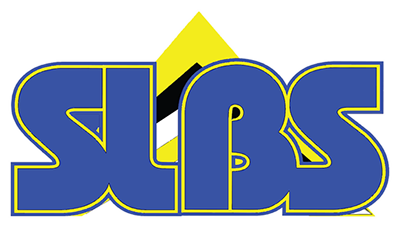About Us
The Saint Lucia Bureau of Standards was established as a statutory body under the Standards Act No. 14 of 1990, and commenced operations on 01 April 1991. The affairs of SLBS are governed by a broad based Standards Council, which sets the policy direction of the institution.This Council is accountable to the Minister with responsibility for Standards Matters(that is, the Minister of Commerce).The Director of SLBS is the chief executive who is responsible for directing and managing the financial and administrative affairs of SLBS.
The Standards Act provides for the preparation and promotion of standards in relation to goods, services, processes and practices used and produced locally. The Act gives SLBS the responsibility to develop and promote standards for products and services for the protection of the health and safety of consumers and the environment, as well as for industrial development, in order to promote the enhancement of the economy of Saint Lucia.
SLBS also administers the Metrology Act No. 17 of 2000. This legislation gives the organization the responsibility to regulate all weights and measures activities on the island. This Act also makes provision for the metrication of Saint Lucia. Consequently, SLBS is responsible for developing, adopting, maintaining, promoting encouraging and enforcing conformity to standards, and providing metrology services. SLBS executes its mandate through a number of programmes in the following areas:
1. Standards Development – National standards development and national position formulation
2. Certification – Product and process certification
3. Compliance – Enforcement of compulsory national standards and international standards where applicable
4. Metrology – Verification and calibration of measuring devices
5. Communication Services – Provision of technical information
6. Technical Assistance – Provision of training and other specific conformity related activities and development of sector-based standards.
SLBS serves as the National Enquiry Point for the World Trade Organization’s Agreement on Technical Barriers to Trade (TBT) and the contact point for CODEX (the joint commission between the FAO and WHO), which is responsible for developing international food standards.
Further, the institution has full membership with the following:
1.International Organization for Standardization (ISO)
2. The CARICOM Regional Organization for Standards and Quality (CROSQ)
3.Pan American Standards Commission (COPANT)
4. Inter-American Metrology System (SIM)
SLBS has also forged partnerships and alliances with other regional and international standards bodies such as the:
1. International Electrotechnical Commission (IEC)
2.American Society for Testing and Materials (ASTM)
3. British Standards Institute (BSI).
Continuation of Products and Services
• Sale of national, regional and international standards and standard-type documents
• Monitoring of compliance of goods to compulsory national standards and international standards where applicable
• Information Services
SLBS provides library services and carry out research pertaining to standard related matters. SLBS serves as the National Enquiry Point for the World Trade Organization’s Agreement on Technical Barriers to Trade (TBT) and the contact point for CODEX (the joint commission between the FAO and WHO), which is responsible for developing international food standards.
• Technical assistance in areas of standards, metrology and related matters in the form of:
o Research
o Development of industry standards/codes
o Facilitating testing and other standard related activities
o Assessment of specified facilities
Quality Policy
The Saint Lucia Bureau of Standards, as the national standards body and metrology Institute, is committed to promoting quality, standardization, conformity assessment and metrology for the enhancement of the economy of the nation, and the quality of life of its people.
We shall conform to the requirements of the Standards Act, Metrology Act and other relevant legislation, in the provision of our products and services.
Our programmes are therefore aligned to national economic and social priorities; we work steadfastly to influence regional and international standardization activities that impact on our island’s developmental goals.
We believe that QUALITY is understanding and exceeding the needs of each Stakeholder and doing the job right, through due process, openness, transparency and impartiality.
SLBS Management commits to ensure compliance with the requirements of our Quality Management System, whilst providing a framework for the continual improvement of its effectiveness.
Corporate
The Saint Lucia Bureau of Standards was established as a statutory body under the Standards Act No. 14 of 1990, and commenced operations on 01 April 1991. The affairs of SLBS are governed by a broad based Standards Council, which sets the policy direction of the institution. This Council is accountable to the Minister with responsibility for Standards Matters (that is, the Minister of Commerce). The Director of SLBS is the chief executive who is responsible for directing and managing the financial and administrative affairs of SLBS.
The core values as follows:
- Quality & Continuous Improvement
- Integrity & Ethics
- Confidentiality
- Impartiality
- Transparency
- Professionalism
- Teamwork
- Employee Empowerment
- Partnership/ Stakeholder Engagement
Functions of the Bureau
In order to promote the general welfare of the nation, the aims and objectives of the Saint Lucia Bureau of Standards are to:
Departments
The Saint Lucia Bureau of Standards consists of 7 functional departments of which each is responsible for specific duties. For more information on the departments, please click on the links below:
